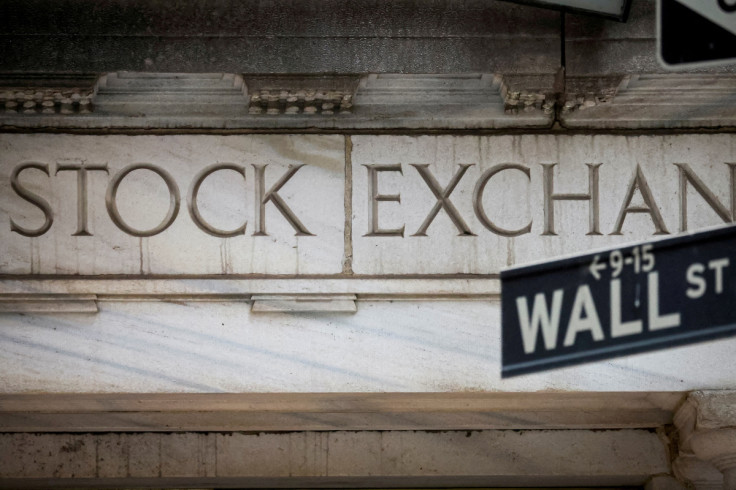Stocks And Bonds End The Last Week Of August With Gains – What Is Ahead For September?

The U.S. stocks ended the last week of August with solid gains on new data showing that the U.S economy continues to grow at moderate rates while inflation pressures are easing.
The S&P 500 ended the week at 4,515, up 1.9% for the week, the Dow Jones at 34,837, up 0.70%, and the tech-heavy Nasdaq at 14,031, up 2.4%.
Equities got some help from bonds. The 10-year bond yield dropped slightly from 4.23% at the beginning of the week to 4.17% at the end. It's a significant reversal from the previous three weeks, which saw bond yields climbing from 4.09% to 4.33%, sending equities lower.
Traders and investors were encouraged by a host of data released during the week, reaffirming that the U.S. economy is on track for a soft landing.
That's a situation of moderate economic growth and low inflation, an ideal environment for equities.
Earlier this week, the government said that Gross Domestic Product (GDP) — the market value of all goods and services produced by the nation's economy during a calendar year — grew at an annual rate of 2.1% in the second quarter.
That's very close to the long-term growth potential of the U.S. economy, easing inflation pressures, as confirmed by data released later in the middle of the week. The Personal Consumption Expenditure (PCE) — the Fed's preferred measure for inflation — registered the most minor back-to-back increases since late 2020.
The cooling of the labor market further confirmed the easing of inflation pressures. On Friday morning, the government reported that nonfarm payrolls rose by 187,000, following a downward revision of the previous two months. In addition, the unemployment rate rose to 3.8% from 3.5% in the last month, and wage growth tapered off.
"Overall, this report tells you that the economy is growing and normalizing," Sonu Varghese, global macro strategist at Carson Group, told International Business Times. "Employment growth is more than enough to keep up with population growth, worker hours are rising and wage growth is easing. And the big picture is that there's no recession, nor are we close to one right now, barring unforeseen shocks."
These labor market data could be a game changer for the Fed, which has been looking for signs that monetary tightening has been working.
"Today's employment report will add to recent data which indicates the Fed can pause on raising interest rates," Steve Wyett, chief investment officer at BOK Financial," told IBT. "While economic growth remains above trend, trends in inflation, and the job market in particular, are moving in the right direction. The Fed is no longer 'chasing' inflation and should be able to allow the impacts of their actions to date to filter through the economy and markets."
The combination of moderate growth and the end of monetary tightening is a positive development for equities. Average growth helps earnings grow, while the steady interest rates make these earnings equally valuable when discounted to the present.
And that could explain the significant gains seen on Wall Street last week, both in the equities and the bond market.
"Stocks posted their second consecutive positive week after this week's economic reports have the market believing the risks of a recession are overblown," Anthony Denier, CEO of Webull, told IBT. "We are going to have a soft landing in the economy, and the Fed will stop raising interest rates."
And things look good for September, a usually weak month for equities, as the easing of inflation could reverse some of the gains in bond yields seen in August.
"Investors now have more reason to think August's surge in Treasury yields was an echo of 2022 and the last gasp of something old instead of the start of something new," David Russell, global head of market strategy at TradeStation, told IBT. "Continued yield easing could help feed the Goldilocks narrative and comparisons to the 1994-1995 soft landing."
But a couple more things could help equities in September, like the high-profile $50 billion arm IPO. It could add fuel to the tech-heavy Nasdaq rally.
Then, analysts are raising quarterly earnings per share estimates for the first time since the second quarter of 2021, according to a recent FactSet report that tracks analysts' earnings estimates for publicly traded companies.
"During July and August, analysts increased earnings estimates for S&P 500 companies for the third quarter," John Butters, vice president and senior earnings analyst at FactSet, wrote in the report. "The Q3 bottom-up EPS estimate (which is an aggregation of the median EPS estimates for Q3 for all the companies in the index) increased by 0.4% (to $56.10 from $55.86) from June 30 to August 31."
© Copyright IBTimes 2025. All rights reserved.






















